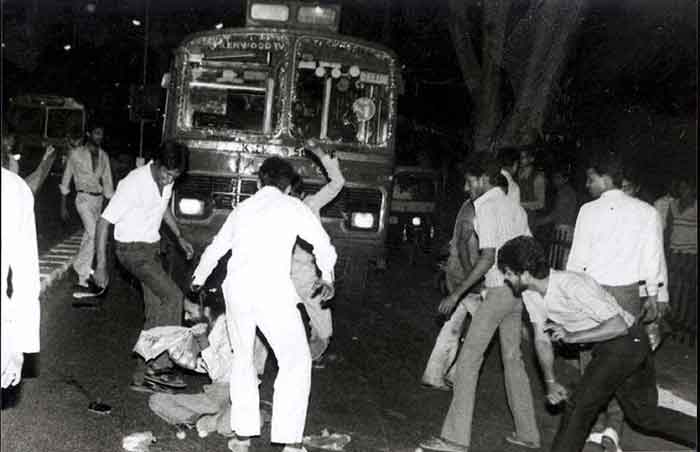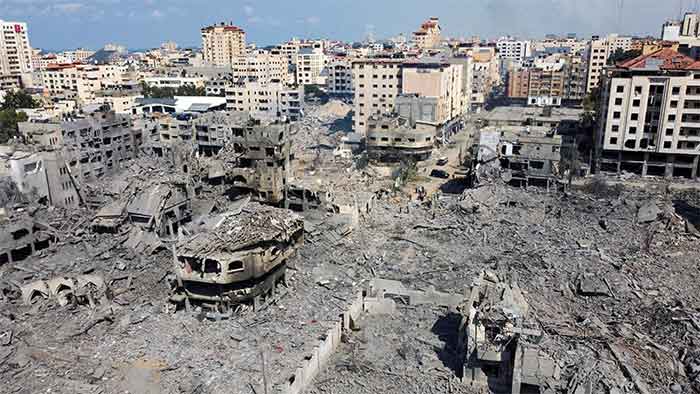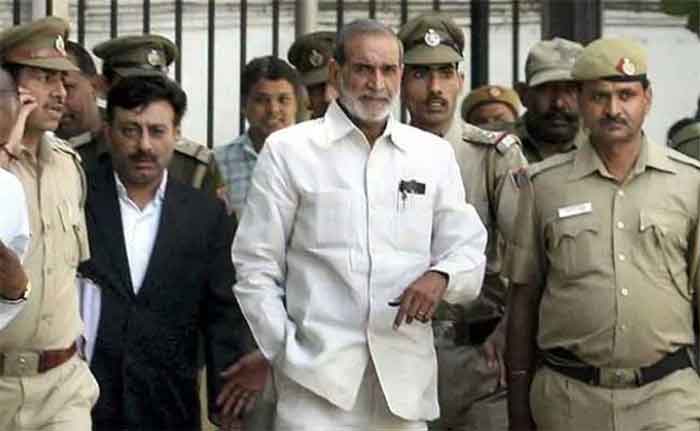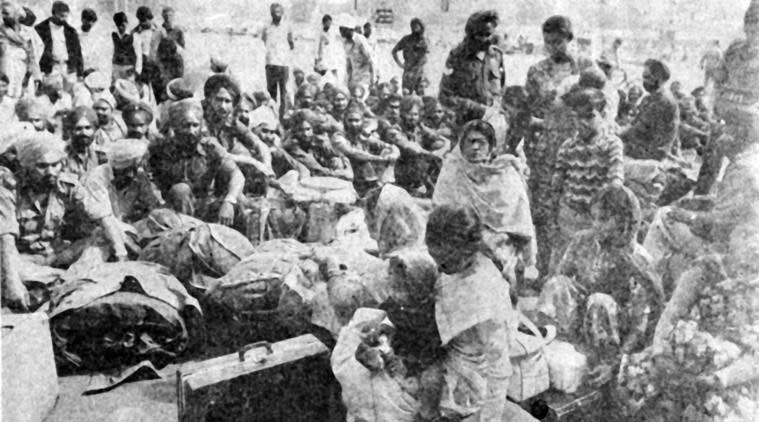
It was the summer of 2018 when I was visiting Berlin with my family. My curiosity for the history of the Holocaust was one of the reasons that took me there.
Once we drove to the city from Frankfurt, where we landed for the first leg of our vacation to Europe, I began searching for any landmark associated with Martin Niemöller. Luckily, his house wasn’t far from the place we had rented for our stay. After locating it through internet, I went there, but to my disappointment the building which is now turned into a museum was shut for some kind of construction. All the signs were in German, a language that is alien to me. There was no response to the phone number given on the website with information about it.
Niemöller’s story had always fascinated me. A theologian and pastor, he is famous for his poetic quotation; “First they came for the socialists, and I did not speak out—because I was not a socialist. Then they came for the trade unionists, and I did not speak out— because I was not a trade unionist. Then they came for the Jews, and I did not speak out—because I was not a Jew. Then they came for me—and there was no one left to speak for me”.
Being a critic of Adolf Hitler and the Nazis, he spent several years in concentration camps, including one in Sachsenhausen near Berlin, where we went for a day trip.
Previously a supporter, he fell out with Hitler after Nazis began taking control of the churches. His opposition to the Nazification of churches turned him into an enemy of the state.
Niemöller never looked back after that, and became an icon for human rights defenders across the globe. His transformation truly reflects his sentiments expressed in his popular verses which are frequently appropriated by civil rights activists even today.
Incidentally, he passed away in 1984, the watershed year for the Sikhs in India.
It was around this time that the Sikhs in Punjab were struggling for extra-territorial rights and safeguards for their religious freedom and political autonomy. Their agitation largely remained peaceful, and the Sikhs make up only two percent of Hindu-dominated India, but they were unfairly targeted by the self-proclaimed secularist Congress government in the name of national unity, to win the upcoming general election by polarizing Hindus. Any campaign by the moderate Sikh leadership was either ignored or maligned in the mainstream media as separatist. The allegations are that the government secretly patronised a parallel militant leadership to both weaken the Sikh movement, and create suitable circumstances to go after the community to please the majority. Both the state controlled media and embedded journalists of that time attributed a spate of death squad killings of Hindus and political critics of the militants, to those inside the shrine.
Exactly 38 years ago in June, 1984 the Indian army attacked the Golden Temple Complex in Amritsar, the holiest shrine of the Sikhs, to deal with a handful of insurgents holed up inside the place of worship. The ill-fated military operation left many innocent pilgrims dead and important historical buildings heavily destroyed.
All other alternatives to make the militants surrender, through negotiation, siege or cutting water and power supplies, were avoided to make it appear like a spectacular victory over one group of people. On October 31, 1984, the bloodshed culminated into the murder of then-Prime Minister Indira Gandhi by her Sikh bodyguards, who were outraged by the events of Amritsar. Following her assassination, the Congress party orchestrated a massacre of Sikhs all over India. In New Delhi alone nearly 3,000 Sikhs were slaughtered by the mobs with the help of police.
Riding an anti-Sikh wave, Indira’s son Rajiv Gandhi, who was complicit in the pogroms, won the next election with a huge mandate. He became Prime Minister, leaving little doubt about the real intentions behind the government targeting a particular community. The privileged majority remained indifferent to such blatant repression. Even the so-called liberals looked away, as they considered and still see Congress as a sacred cow. They very conveniently overlooked the grievances of the Sikhs. Rather than standing up for an aggrieved minority or doing anything meaningful to assuage their hurt, they were carried away by the one sided propaganda of the Congress party.
It has been well documented that supporters of the Hindu nationalist Bhartiya Janata Party (BJP) that currently governs India also relished the sufferings of the Sikh community. Some of them openly justified the actions of the Congress government, while others joined in the massacre. That explains why the Congress won a brute majority, leaving the BJP with only two seats in the parliament, while Congress bagged more than 400.
Fast forward to February, 2002 when Gujarat witnessed its worst Muslim massacre on the watch of then-Chief Minister Narendra Modi. Thousands of Muslims were killed by mobs led by BJP activists in the state, after a train carrying Hindu pilgrims caught fire leaving more than 50 passengers dead. Modi, who is now the Prime Minister and leads the BJP government in New Delhi with a comfortable majority, had blamed the incident on Islamic fundamentalists, inciting Hindus to go after Muslims.
Though he was never charged, the survivors continue to allege his involvement. The pattern of violence was similar to the one observed in 1984. Modi was re-elected with more seats in the assembly election that followed, and he was able to sustain his rule in Gujarat. This gave him an edge over other leaders of the BJP, gradually turning him into a potential candidate for the post of Prime Minister in the 2014 parliamentary election.
In the meantime, the BJP continued to do its spade work by indulging in divisive politics to ensure his ascendance. In 2008, an anti-Christian massacre rocked the state of Odisha, where a controversial Hindu preacher was killed by Maoist insurgents. Looking for an opportunity to teach Christian missionaries a lesson for their work in the tribal community, the BJP supporters blamed them. The BJP has always accused missionaries of converting Hindus through fraudulent means, although India’s traditional secular conventions allowed people to change their religion. The fact remains that most poor and marginalized sections of India, especially Dalits or the so-called untouchables, and Adivasis or the indigenous peoples, often become Christians by choice to avoid caste-based persecution within the Hindu society.
Emboldened by the majoritarian support for all these years, the BJP knew exactly what they were doing. They were able to muster enough numbers to ensure outstanding wins for Modi, first in 2014 and then in 2019. Notably, Modi did not lose the second election even though attacks on religious minorities and political dissidents grew under him.
Back in Berlin, I was wondering where Indian society has gone since 1984. Here we could hardly see any residue of the Nazi era being celebrated, whereas India has gone backward in spite of tall claims of diversity. The Nazis actually have become the mainstream in India and live among its citizens. This should not surprise anyone, as the founders of the Hindu supremacist cultural organization Rashtriya Swayamsewak Sangh (RSS), of which the BJP is a part, had glorified Hitler and justified the Jewish holocaust. Inspired by Nazism, they have spent years to transform India into a Hindu theocracy through social engineering; today, not just the Sikhs, but everyone is in danger. Had others stood up for the Sikhs in 1984, the fate of contemporary India would have been different. I wish Niemöller was alive to see this and relate it with his own experiences, to guide us all.
One after another, minorities were assaulted with impunity, paving the way for Modi to take over India. Muslims and Christians have been turned into second class citizens, while the Sikhs face a challenge of assimilation into the Hindu body politic. The RSS has never acknowledged the distinct identity of the Sikhs, whom it vehemently considers part of the Hindu fold, something that triggered anxiety among the Sikhs during the 1980s, forcing some to take up arms in the first place. Dalits and Adivasis, who have endured systemic discrimination for centuries, have become even more vulnerable in Hinduized India. Under these circumstances, a reasonable or liberal Hindu voice from the dominant society isn’t safe either. Those who dare to question Modi or the RSS can end up being eliminated or thrown in jail on trumped up charges.
It’s time to learn something from the legacy of Niemöller. If there is any take away from that, it is the lesson of getting united to fight back for everyone, and not leaving others in harm’s way, before it is too late.
Gurpreet Singh is a journalist
















































